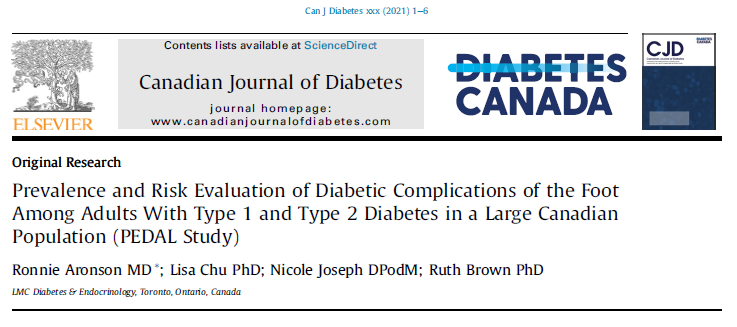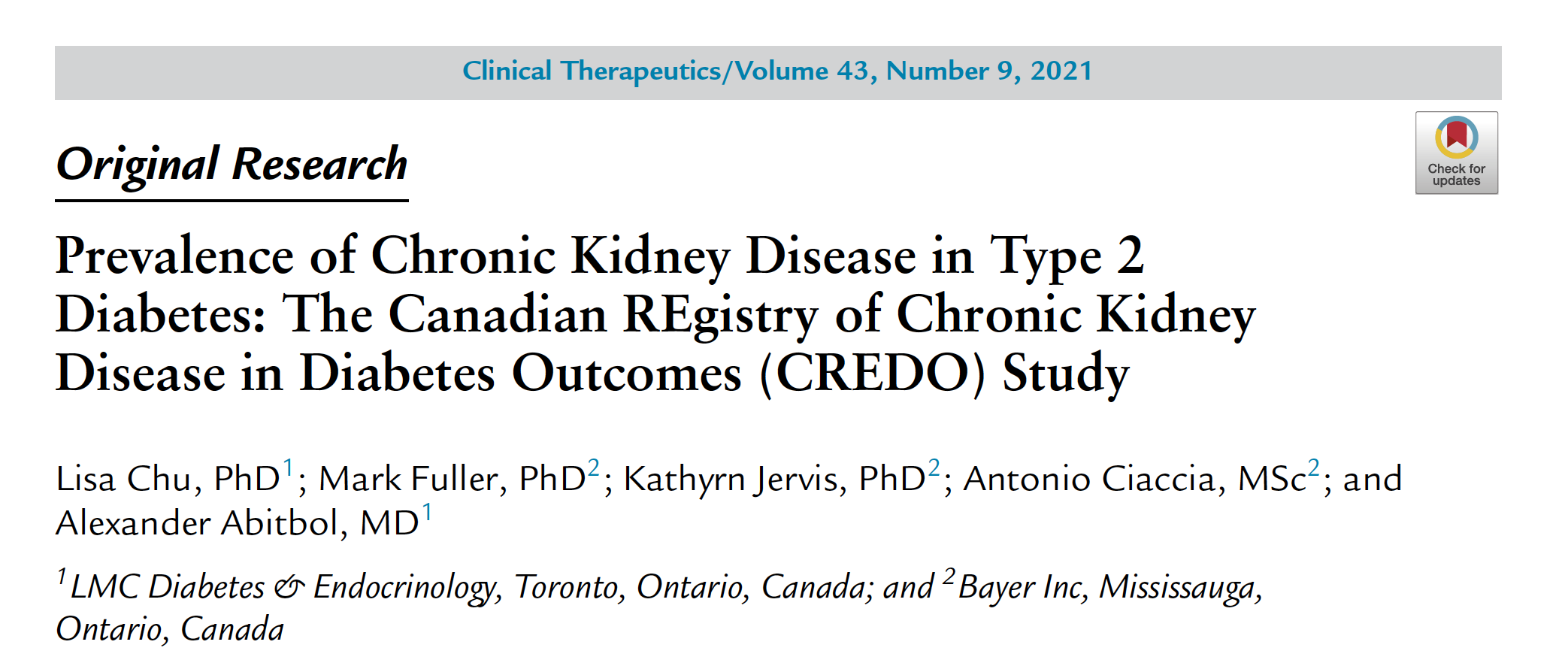Prevalence and Risk Evaluation of Diabetic Complications of the Foot Among Adults with Type 1 and Type 2 Diabetes in a Large Canadian Population (PEDAL Study)

Specialist-led diabetes registries and predictors of poor glycemic control in type 2 diabetes: Insights into the functionally refractory patient from the LMC Diabetes Registry database
Prevalence of Chronic Kidney Disease in Type 2 Diabetes: The Canadian Registry of Chronic Disease in Diabetes Outcomes (CREDO) Study

Chronic kidney disease in patients living with type 2 diabetes is often associated with an increased risk of developing end-stage kidney disease, cardiovascular disease, and death. Given the continuous expansion of treatment options available for chronic kidney disease among the type 2 diabetes population, an analysis of treatment outcomes is required. The CREDO study examines the prevalence of chronic kidney disease in patients with type 2 diabetes utilizing the Canadian LMC Diabetes Registry to evaluate treatment patterns, patient characteristics, and health care provider rationale for initiating therapies. The findings of the study enhance the current understanding of treatment options available for patients with chronic kidney disease and type 2 diabetes while providing a comprehensive strategy for comorbidities, cardiovascular and kidney risk protection.
Specialist-led diabetes registries and predictors of poor glycemic control in type 2 diabetes: Insights into the functionally refractory patient from the LMC Diabetes Registry database
